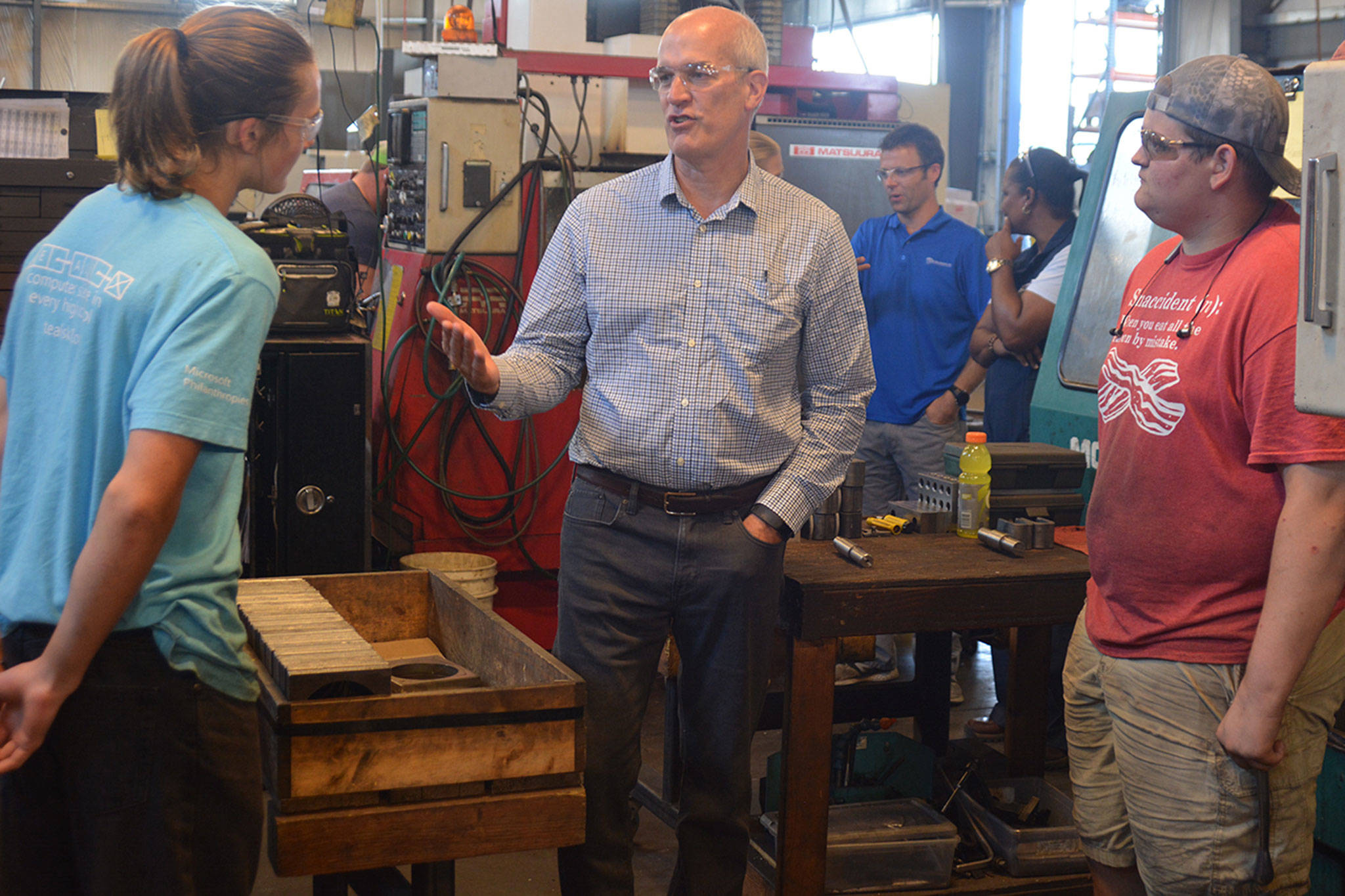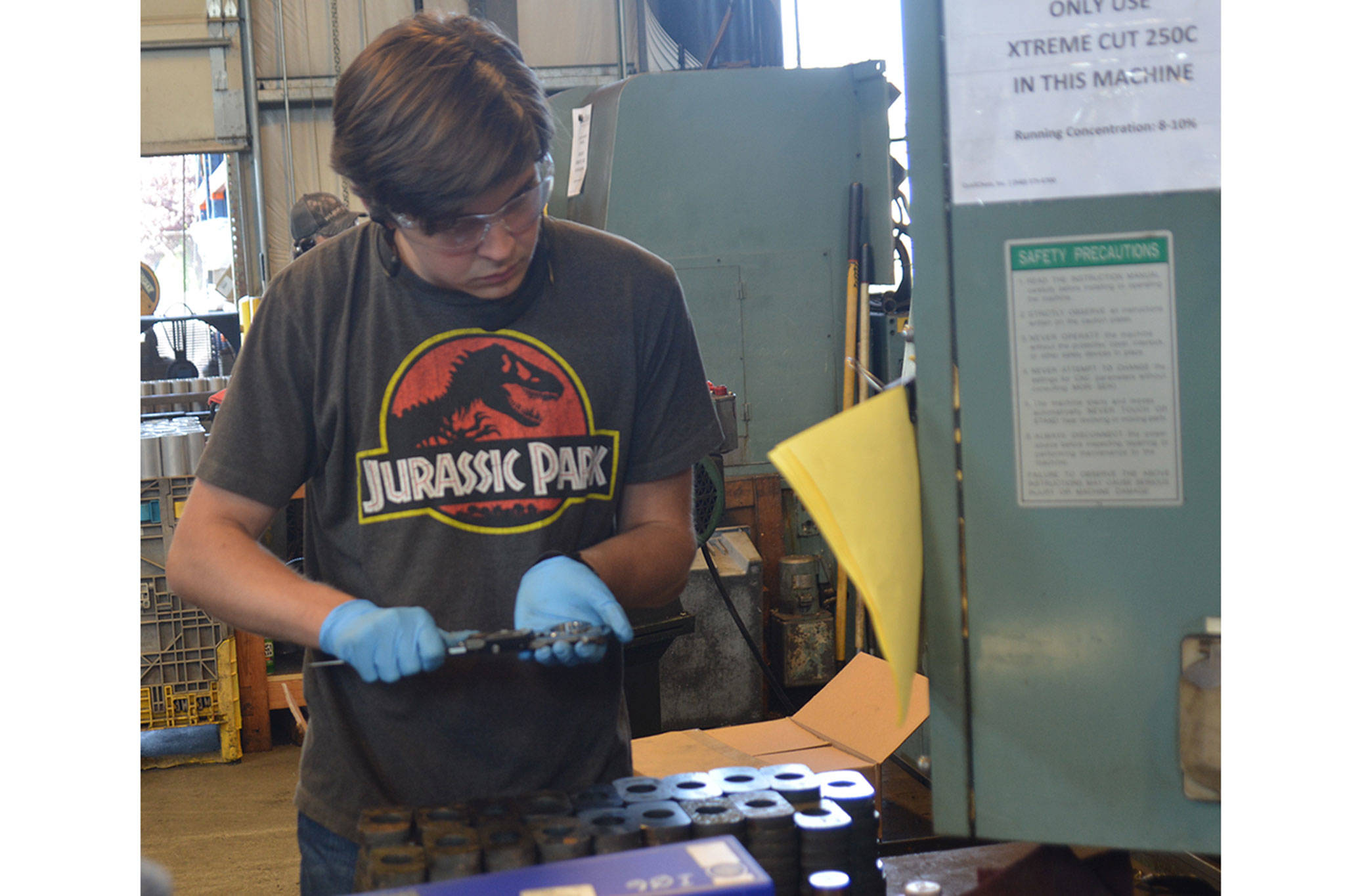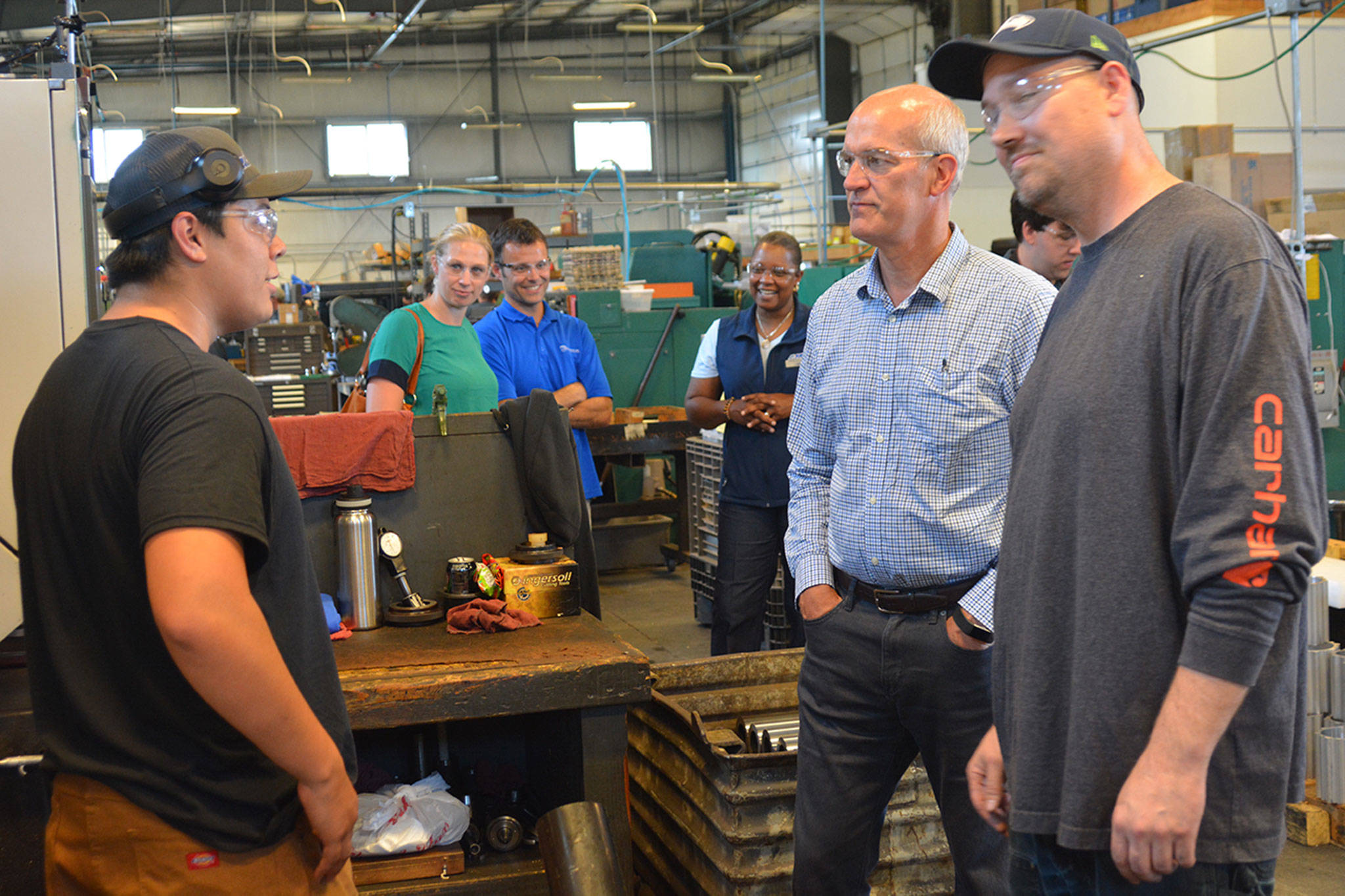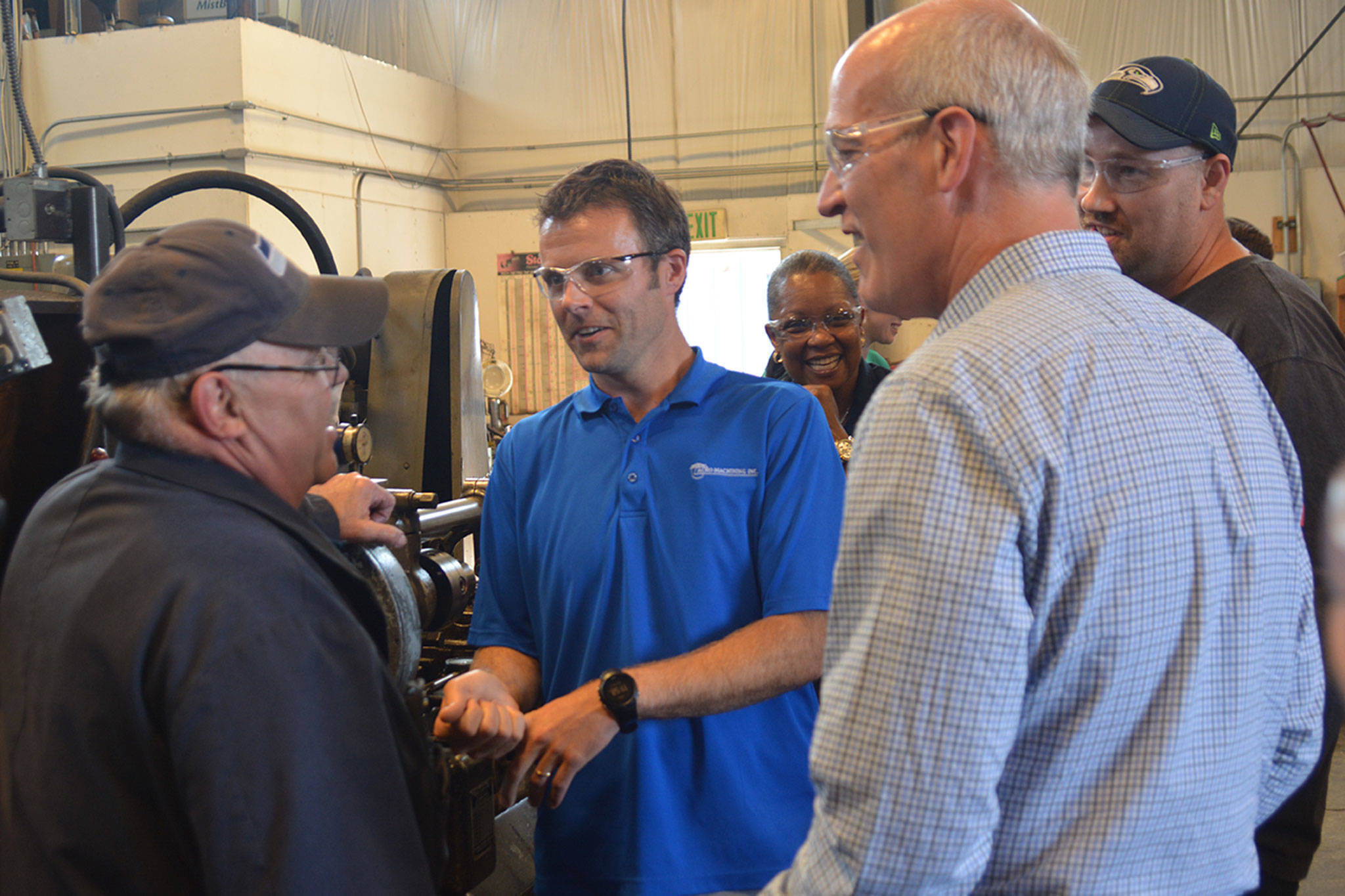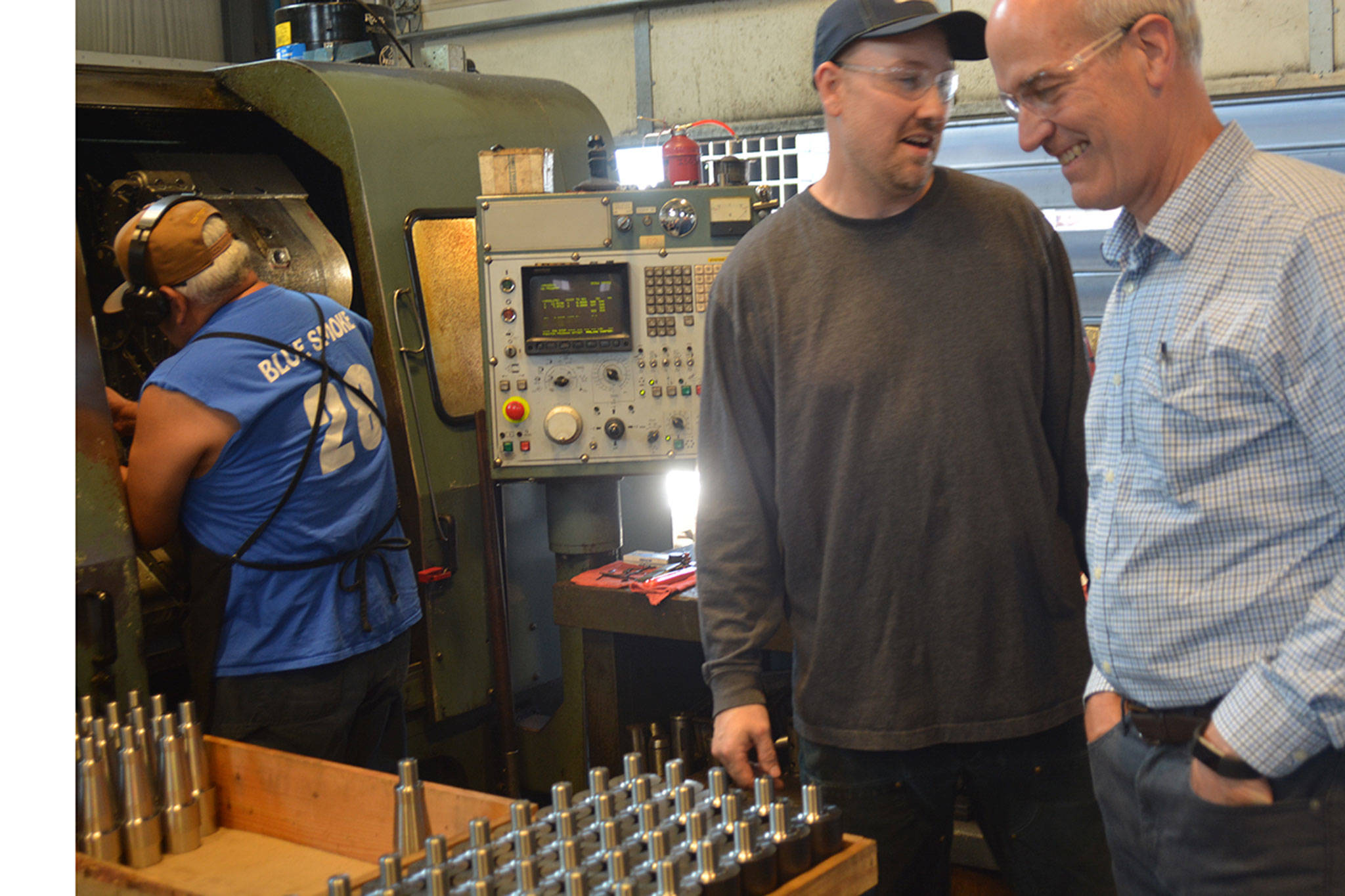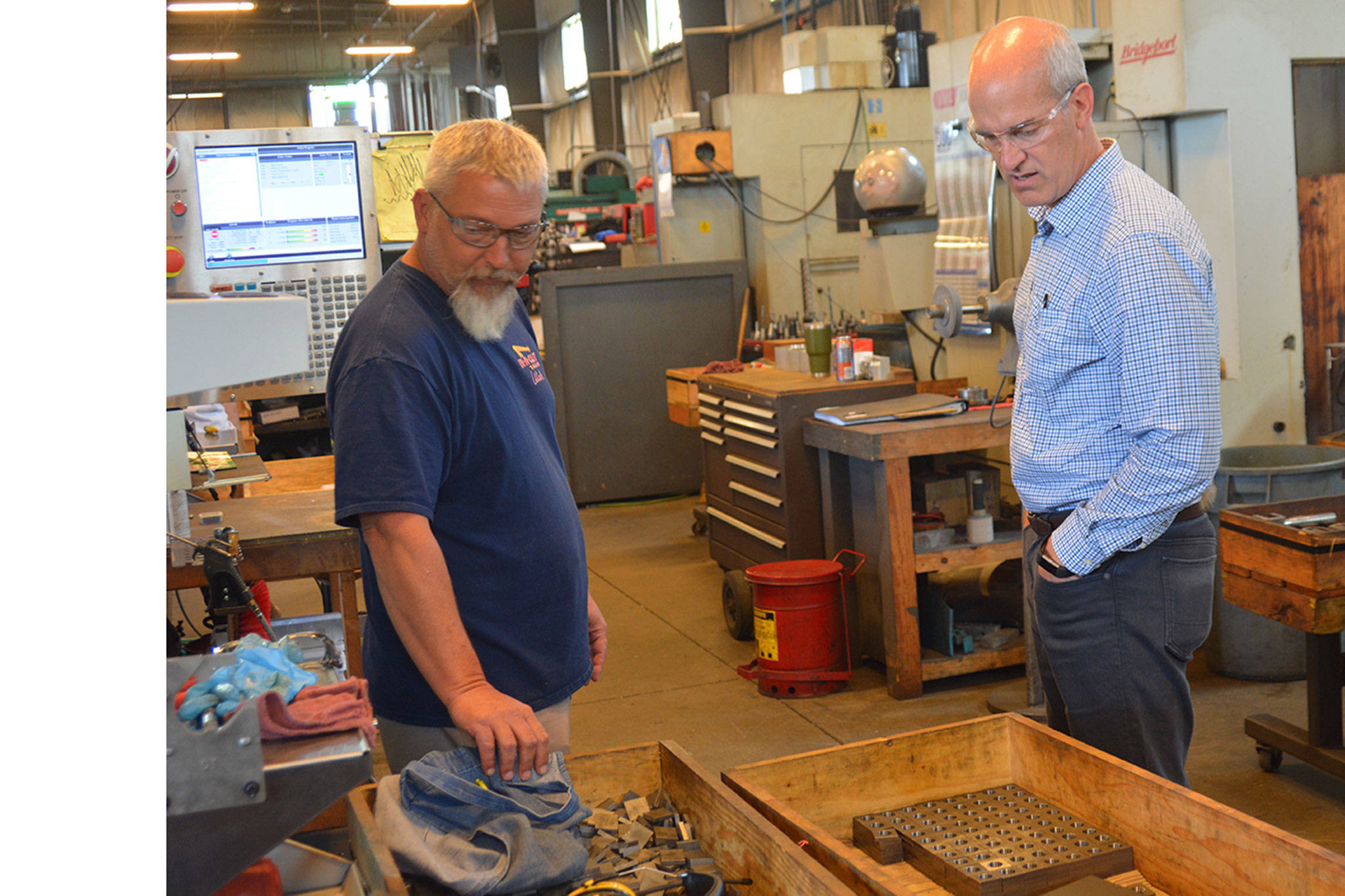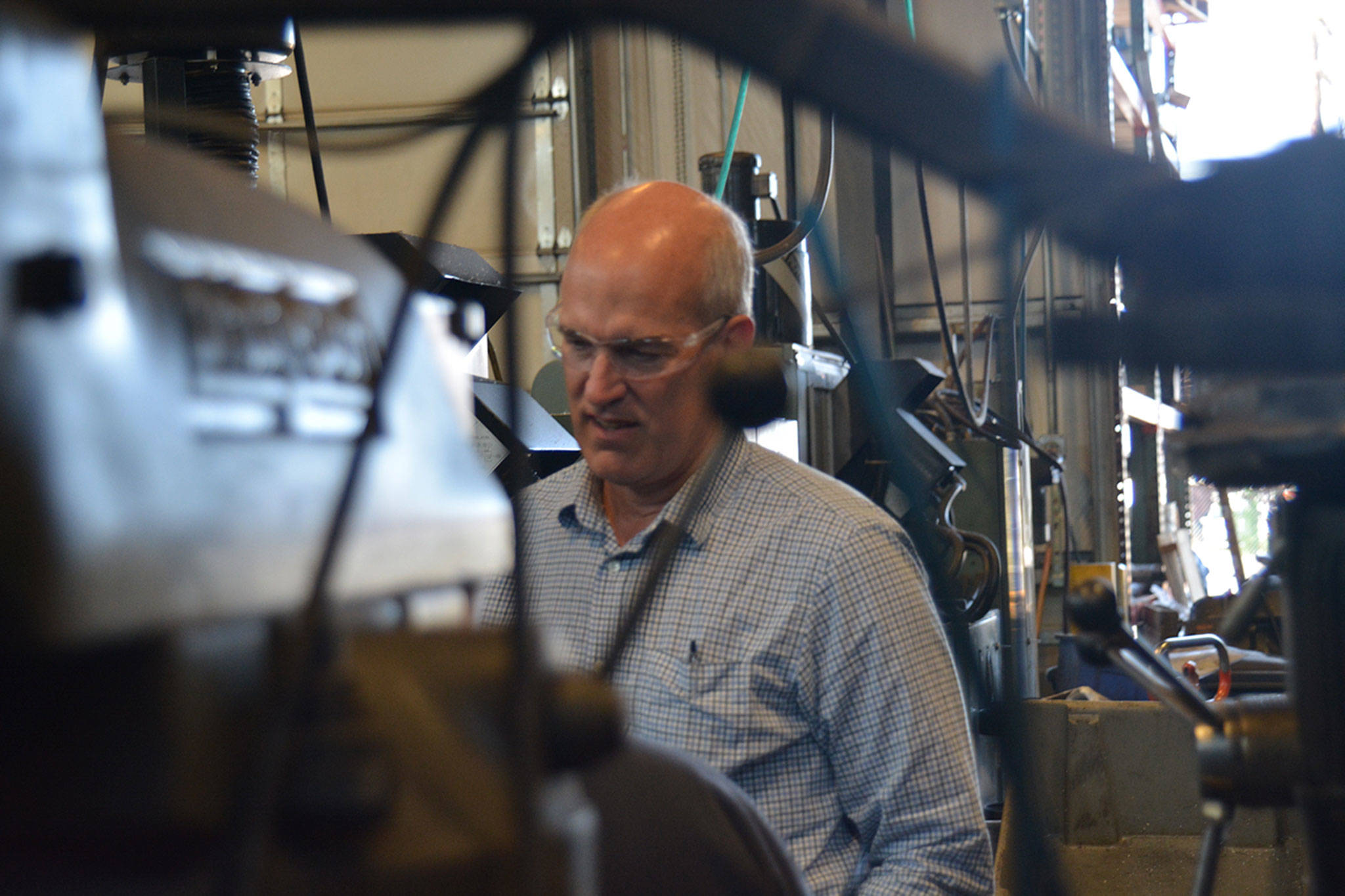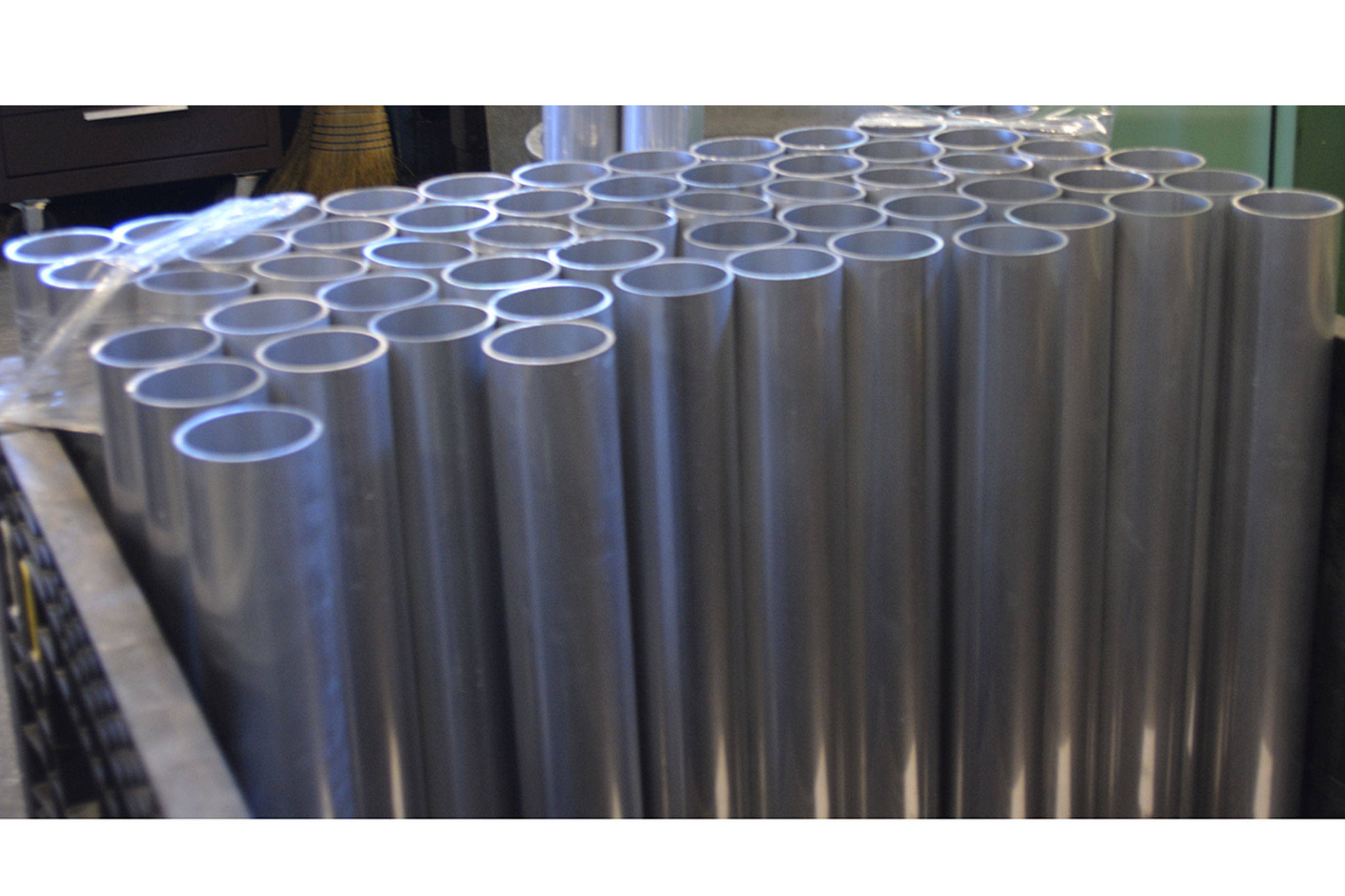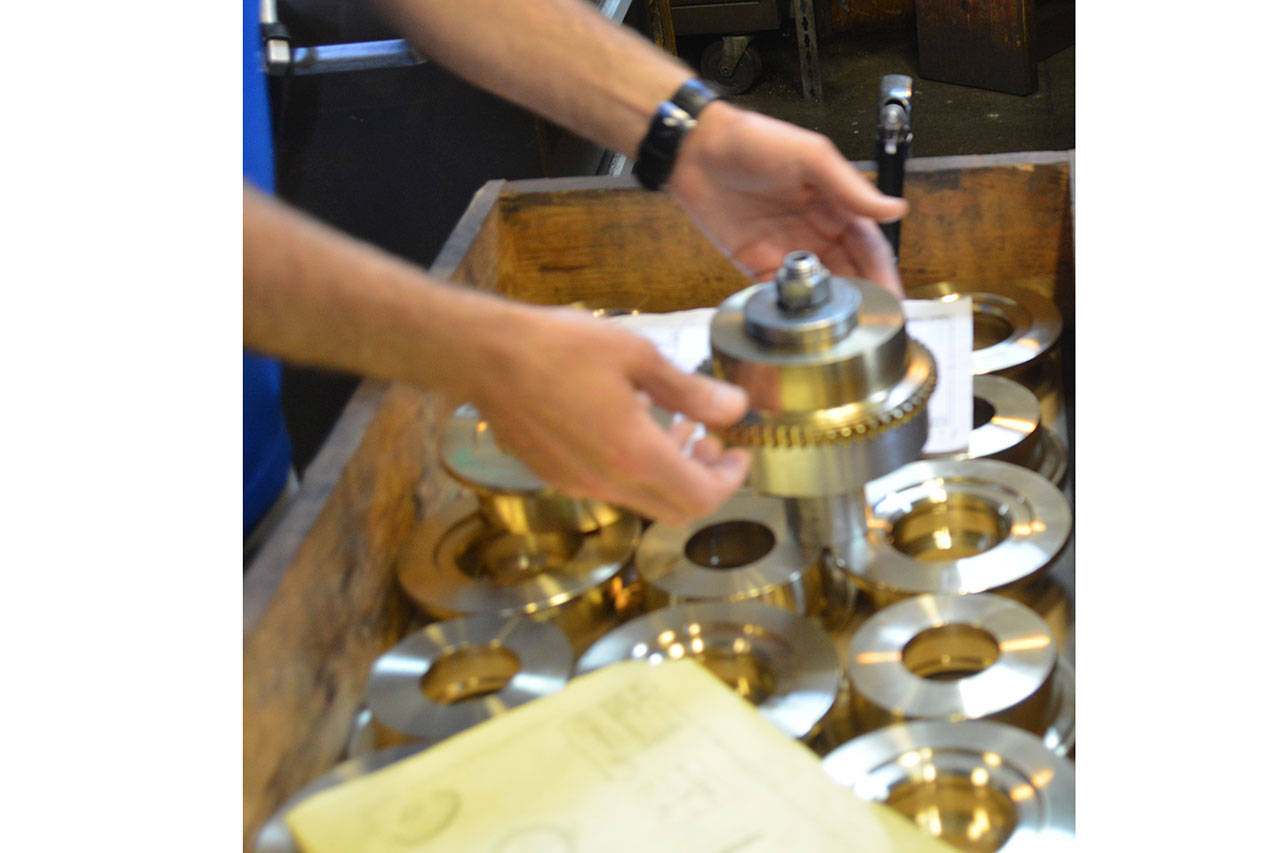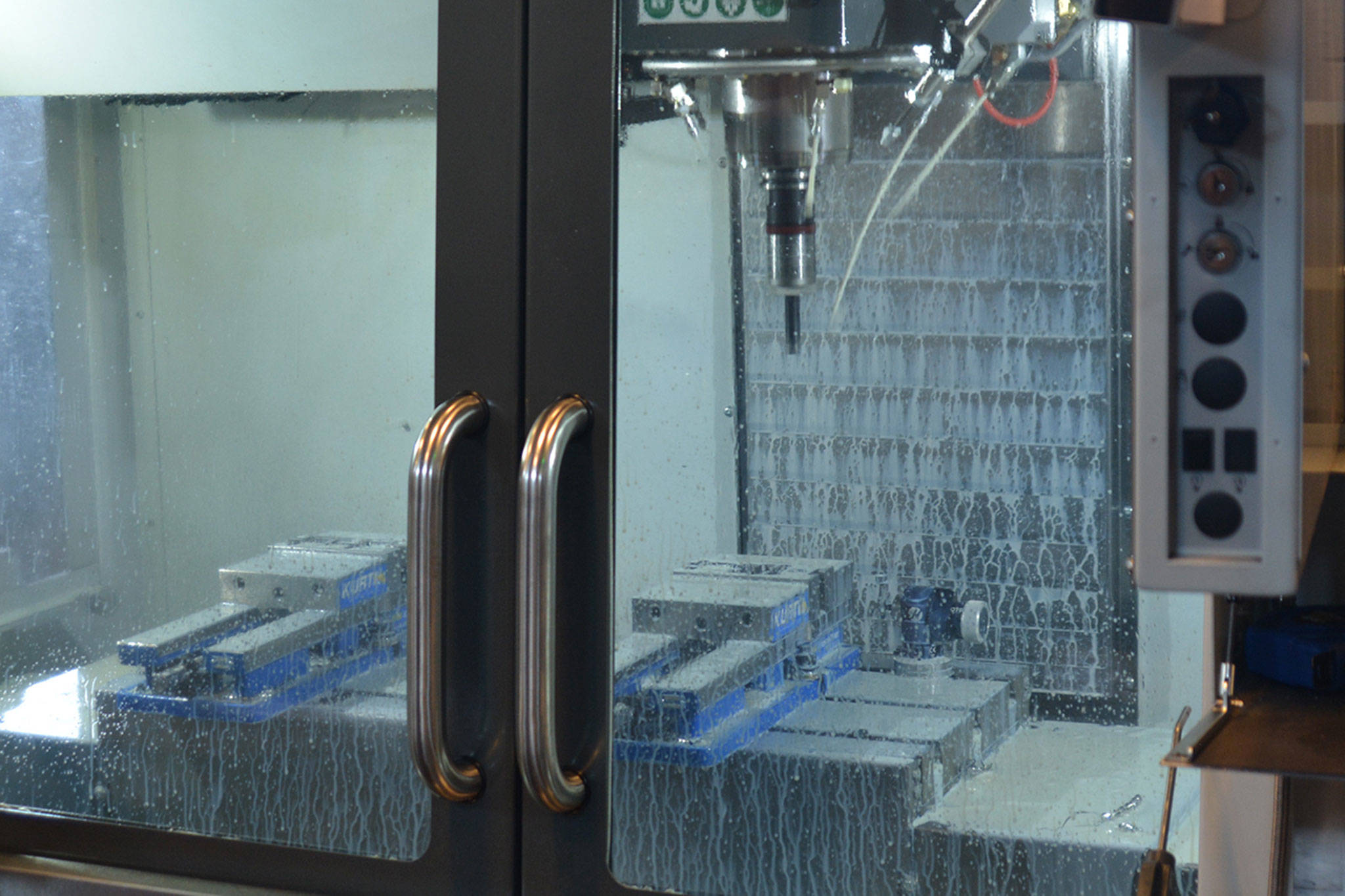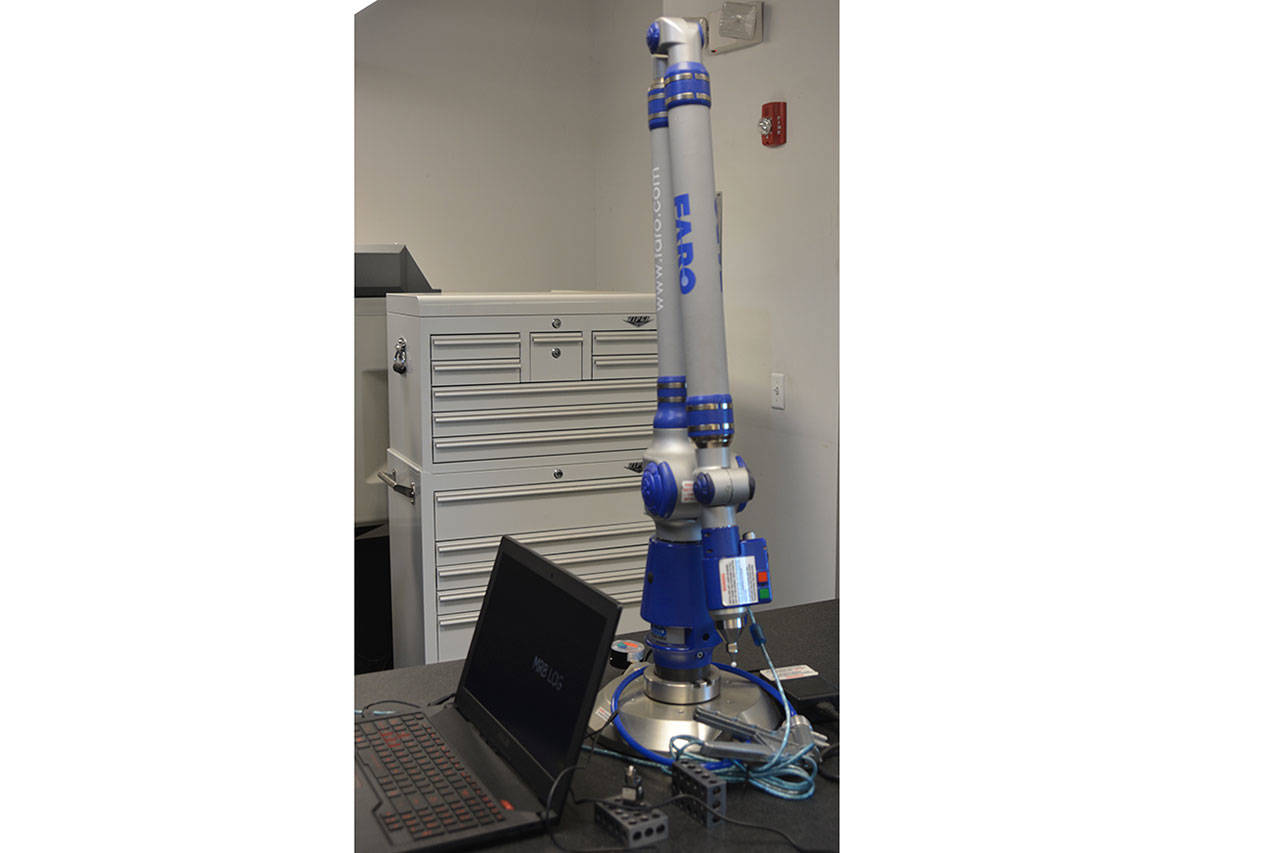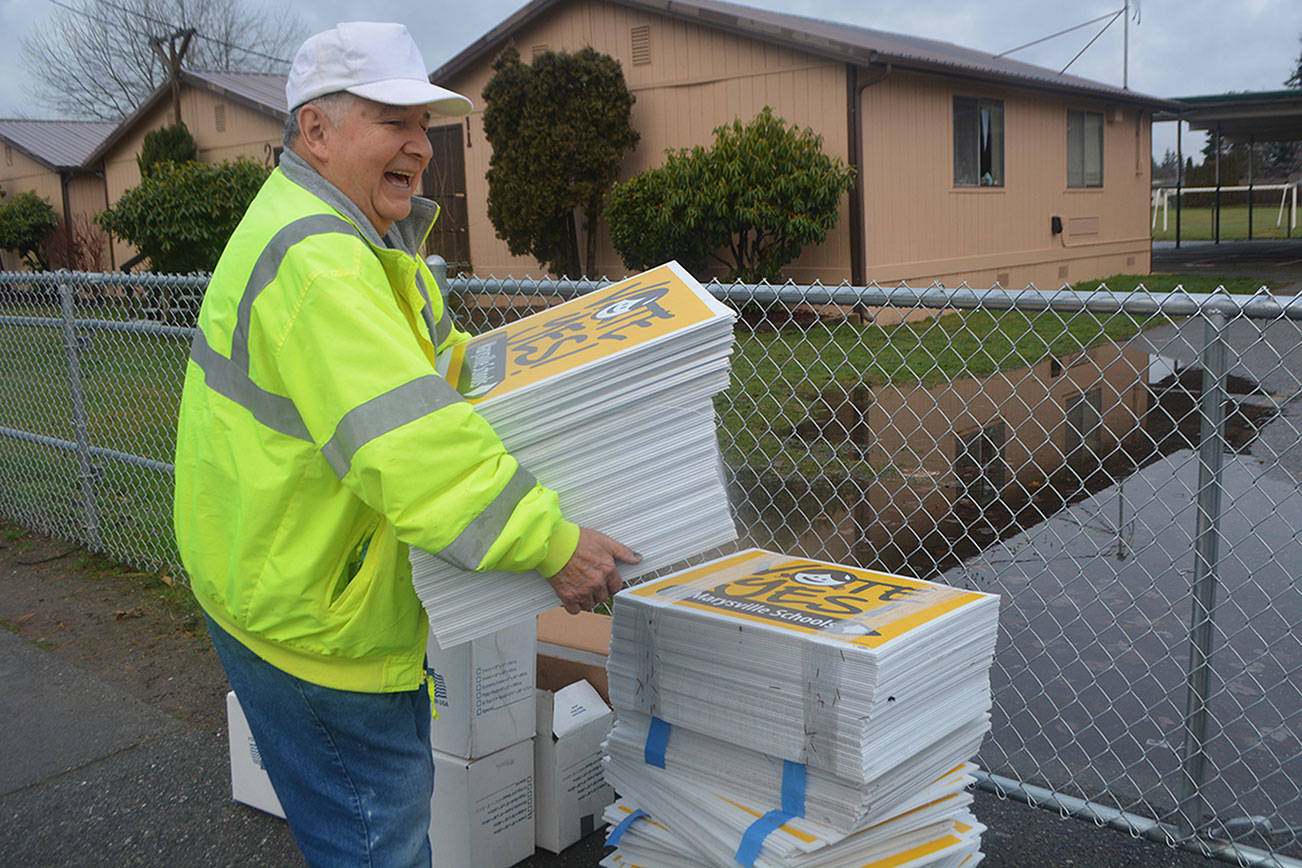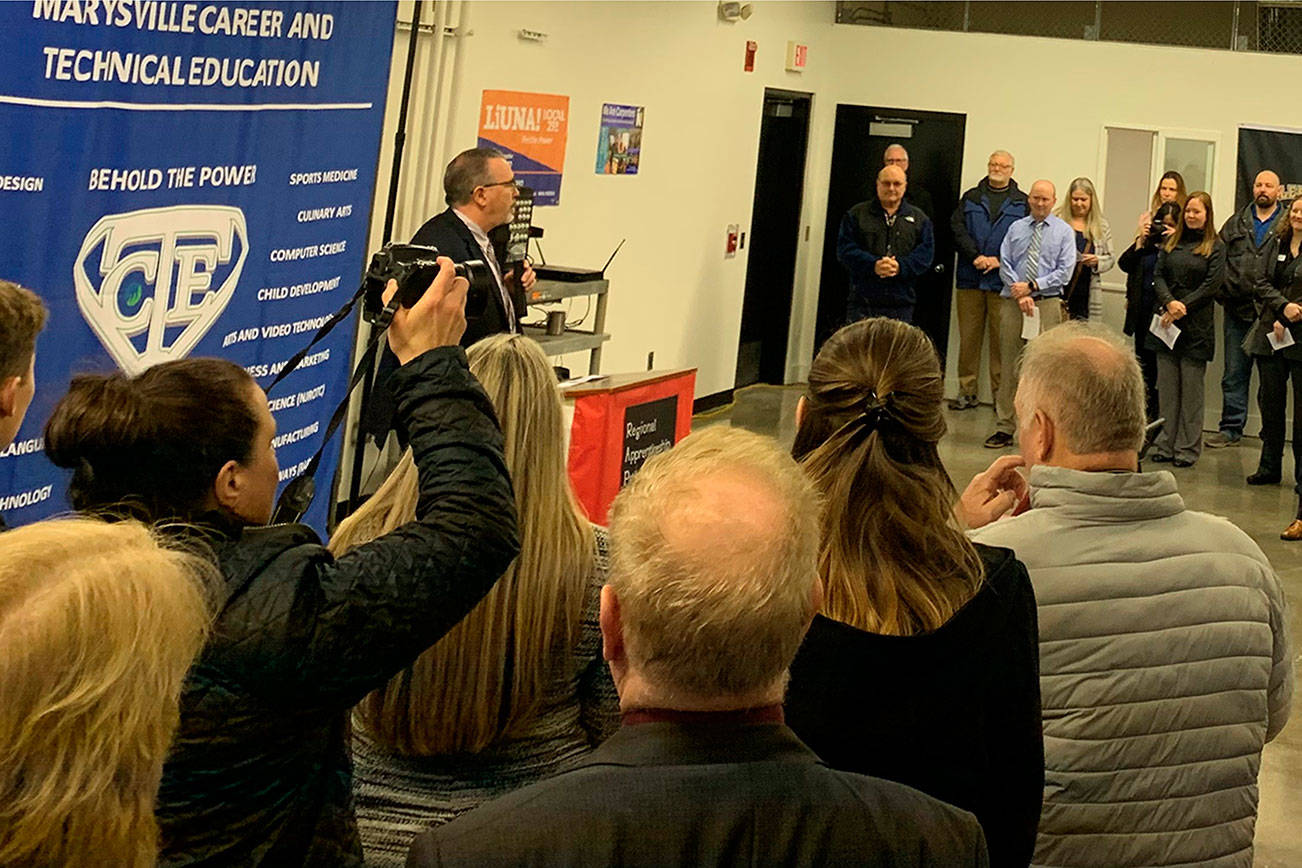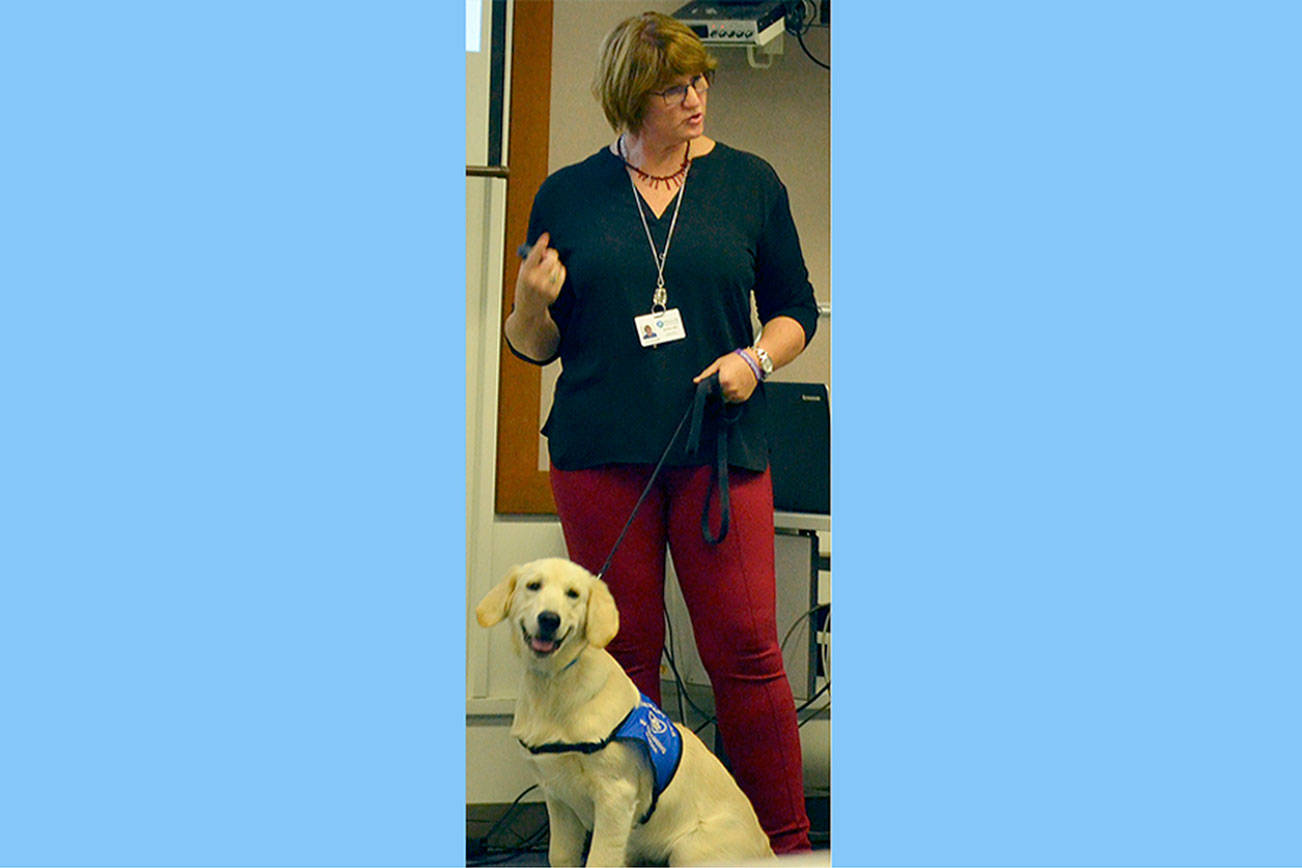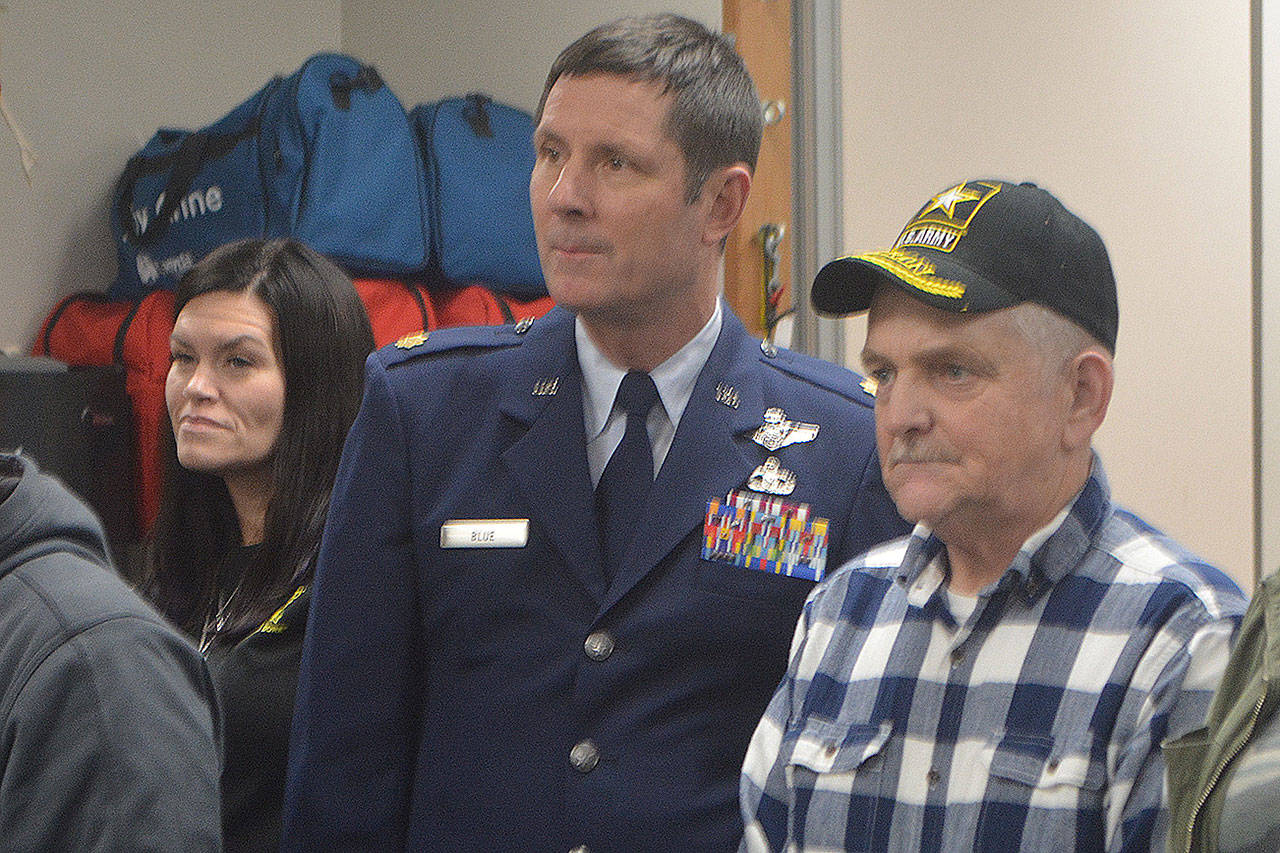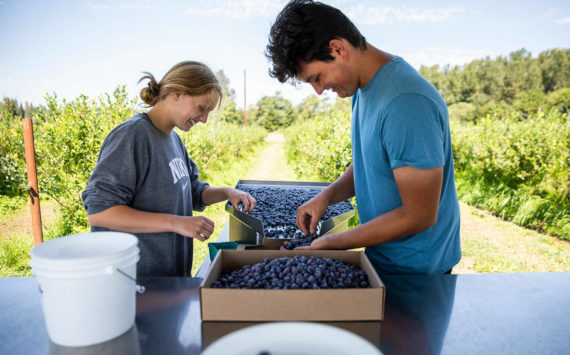MARYSVILLE – Schools are finally listening to what local employers have been saying for years.
That they need workers.
Acro Machining Inc. of Marysville is working with the Aerospace Joint Apprenticeship Committee, or AJAC, to provide those workers.
For the first time, Acro has high school students working in its plants full-time this summer to provide some of the experience they need to get one of those high-paying jobs in just a few short years. The high schoolers are from Everett and Snohomish school districts, but the hope is to get Marysville and Arlington onboard this coming year.
When high school starts, the hours are cut back to up to 20 a week.
“It’s not an excuse to fall behind on their studies,” said Danny Edmonds, 38, of Lakewood, who runs the family business with a cousin.
U.S. Rep. Rick Larsen took a tour of the business Wednesday to discuss the value of the program for the company and apprentices.
Connecting young people with skills they need to compete in the workforce is critical to a strong economic foundation, Larsen says. Washington state continues to be a leader in Science, Technology, Engineering and Mathematics (STEM) with more than 313,000 high school students and 165,000 two-year college students enrolled in CTE programs. Larsen’s Youth Access to American Jobs Act of 2017 would help high school students access in-demand jobs related to growing STEM industries by creating a pathway through community college and into an apprenticeship.
Demetria “Lynn” Strickland, executive director of AJAC, said 86 percent of the apprentices stick with their employer. They aren’t just kids either. The average age is 33. Apprentices can also get college credits and 50 percent off tuition.
Strickland said AJAC is a response from the state when industry said its $76 billion in businesses needed workforce development. Julien Kotlovski, who will be a senior at Everett High starting next month, has been part of the apprenticeship program for 1 1/2 months. He decided to try it because it looked interesting, he said, adding someday he wants to work at Boeing so he thought this might be a good learning experience.
While Kotlovski was in the milling plant, Jason Paige of Glacier Peak was in the gear cutting plant. It was his first day. Edmonds said those in the apprentice program are switched around so they learn multiple skills.
He said his grandpa and uncle started the business in a garage near where the Albertson’s is now back in 1978. One employee, Guy Johnson, was there at the beginning, having lied about his age so he could get the job. Edmonds said he started working there as a garbage boy at age 16. He worked all over the plant and learned about all of the machines, so when his uncle retired he took over.
The business has up to 90 employees, including about seven women. They work in two shifts Monday through Friday, with quite a bit of overtime.
“They go like gangbusters” when they have to, Edmonds said.
There are 20 mill machines and 30 cutters, he said, as the plant is divided into two large warehouses.
The company does an amazing amount of machine work for customers in aerospace, electronics, marine, mechanical, exercise and automotive industries.
“We do a lot. It’s been a blessing over the years,” Edmonds said, adding if one industry is in a downturn, Acro can work on another.
To address the demands of the changing global economy, Larsen recently introduced legislation to fill a critical gap in workforce training opportunities through online workforce training grants. The Online Job Training Act would amend the Workforce Investment and Opportunity Act by adding an online workforce training grant program. The program would provide $50 million in National Online Workforce Training Grants available in fiscal years 2019-2029. This legislation will help folks who may not have the opportunity to access in person training resources, like working parents and those with limited transportation access, to re-enter the workforce.
